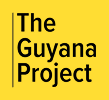Close

The United States Ambassador to Guyana has voiced serious concerns over the political ambitions of a businessman currently under U.S. sanctions, highlighting potential complications for bilateral relations and private sector investment. The individual in question faces sanctions from the U.S. Treasury’s Office of Foreign Assets Control (OFAC) for alleged involvement in gold smuggling, tax evasion, and corruption—a step that has raised alarm in diplomatic and business circles alike.
According to the ambassador, if the sanctioned individual were to successfully run for public office, especially as a member of parliament, it could force the U.S. to reevaluate engagements with committees or initiatives where he may participate. “Anytime a U.S. Department of the Treasury, OFAC-sanctioned individual has the potential to become a member of government, that is concerning for us. It is problematic in multiple ways,” the ambassador stated, underscoring diplomatic sensitivity around possible government involvement, even in opposition positions (Department of Public Information, DPI Guyana).
Private sector implications are equally significant. U.S.-based companies eyeing opportunities in Guyana—including those in energy, mining, and infrastructure—may reassess their involvement if a sanctioned figure assumes official duties. “U.S. companies often rethink their relationships with a country where sanctioned individuals are members of the government… sometimes they look to de-risk or cut ties completely,” the ambassador warned (DPI Guyana).
The individual’s political party, recently registered to contest upcoming elections, has drawn scrutiny amid broader concerns over democratic integrity and the impact of sanctions on regulatory compliance. While the individual has pleaded not guilty to local tax-related charges and remains active in campaigning, his bid for office effectively places Guyana’s internal financial and governance debates under international scrutiny (CaribbeanNationalWeekly).
The U.S. continues to regard Guyana as a key strategic partner, particularly in trade, defense cooperation, and democratic resilience. However, the broader point raised by the ambassador reflects concern that electing a sanctioned individual into government could complicate that alliance: “If an OFAC-sanctioned person were to become a member of the government, I don’t want that to change,” she emphasized (DPI Guyana).
Officials in Guyana have maintained that the sanctions were imposed by U.S. authorities and not a result of domestic decisions, with local institutions taking necessary measures to align with international obligations. Nonetheless, the ambassador’s comments highlight the complex interplay between domestic political developments and international financial and diplomatic relations.
As election campaigning proceeds, this issue underscores how individual candidacies can carry implications that extend well beyond local constituencies—touching on international perception, investor confidence, and strategic alliances.

The Guyana Project is an independent media platform delivering fact-checked, ground-level reporting on politics, economy, and public life in Guyana. With a focus on transparency and development, we bring unfiltered news and thoughtful analysis to help shape a more informed, forward-looking nation.

U.S. Ambassador Flags Risks Over Sanctioned Candidate’s Political Aspirations

Lorem Ipsum is simply dummy text of the printing and typesetting industry. Lorem Ipsum has been the industry’s standard dummy text ever since the 1500s, when an unknown printer took a galley of type and scrambled it to make a type specimen book. It has survived not only five centuries, but also the leap into electronic typesetting, remaining essentially unchanged. It was popularised in the 1960s with the release of Letraset sheets containing Lorem Ipsum passages, and more recently with desktop publishing software like Aldus PageMaker including versions of Lorem Ipsum.
t is a long established fact that a reader will be distracted by the readable content of a page when looking at its layout. The point of using Lorem Ipsum is that it has a more-or-less normal distribution of letters, as opposed to using ‘Content here, content here’, making it look like readable English. Many desktop publishing packages and web page editors now use Lorem Ipsum as their default model text, and a search for ‘lorem ipsum’ will uncover many web sites still in their infancy. Various versions have evolved over the years, sometimes by accident, sometimes on purpose (injected humour and the like).
Contrary to popular belief, Lorem Ipsum is not simply random text. It has roots in a piece of classical Latin literature from 45 BC, making it over 2000 years old. Richard McClintock, a Latin professor at Hampden-Sydney College in Virginia, looked up one of the more obscure Latin words, consectetur, from a Lorem Ipsum passage, and going through the cites of the word in classical literature, discovered the undoubtable source. Lorem Ipsum comes from sections 1.10.32 and 1.10.33 of “de Finibus Bonorum et Malorum” (The Extremes of Good and Evil) by Cicero, written in 45 BC. This book is a treatise on the theory of ethics, very popular during the Renaissance. The first line of Lorem Ipsum, “Lorem ipsum dolor sit amet..”, comes from a line in section 1.10.32.